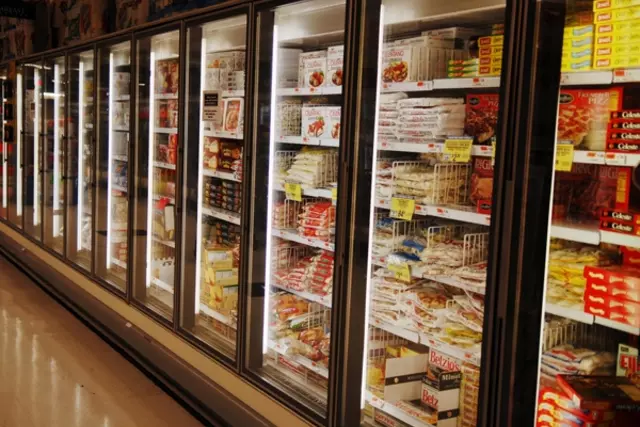The Hidden Risks of Frequent Frozen Food Consumption: What You Need to Know
Frequent frozen food consumption can harm your health due to nutritional loss, high sodium, preservatives, and potential bacterial contamination. Choose wisely!
People are used to buying frozen foods because they are easy to prepare, have a long shelf life, and come in many types. These food items are convenient for those who have little time to prepare food and they usually appear like convenient options as they provide a balance in terms of the food groups. But having frozen foods often is not safe for the body as it comes with many health implications that people should not ignore.

Read more: Discover the 8 Best Vegan Omega-3 Rich Foods
Nutritional Degradation: Freezing can raise issues of nutritional quality of the products to be frozen One of the biggest drawbacks of frozen foods is nutrition. Freezing can preserve some nutrient content, however, this reduces the vitamin content esp. Water soluble vitamins like Vitamin C and B group vitamins which are heat sensitive. Longer loss of nutrients is made even worse after frequent cases of freezing and thawing of food, which makes your meals less healthy.
High Levels of Sodium and Preservatives: Unsurprisingly, sodium and preservatives are also frequently added to the frozen foods, particularly the ready-to-eat meals and snacks. Sodium is added to food to enhance taste and preservative, however, the effects of excessive exposure to sodium results in high blood pressure and heart disease. The chemical substances that are added in preserving the color and texture of frozen foods can be detrimental to your health as they take time to affect your overall digestive system and may lead to other complications.
https://www.facebook.com/ndtv/videos/the-good-bad-the-ugly-of-frozen-foods/608245046981340/
Increased Risk of Weight Gain: High intake of frozen foods is associated with high fat and sugar content among foods such as frozen pizzas, desserts, and fruits. These foods are high in calories some of which are bad for human health especially when they are consumed regularly since they can lead to obesity and other related diseases including diabetes and cardiovascular diseases.
Read more: Fast Food is Delicious, Affordable, easily available, but not Healthy. Period!
Potential for Contamination: Unhygienic conditions or wrong methods of thawing of foods stored in the refrigerator can encourage bacterial development. Since frozen foods are stored below the required freezing point for a relatively long time once they are reheated for consumption, bacteria like Salmonella and Listeria are not eliminated and can cause food borne diseases.
We’re now on WhatsApp. Click to join
Conclusion: By becoming more conscious of the unhealthy effects of frozen foods, there is now an urgent need to make healthier choices. Choose frozen fruits and vegetables with few added ingredients, and try to mix in fresh, whole foods to make sure you get a variety of nutrients. Keeping these things in mind can help you make better food choices and better protect your health.
Like this post?
Register at One World News to never miss out on videos, celeb interviews, and best reads.








